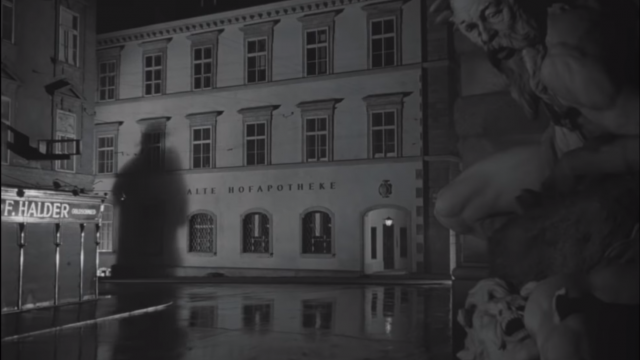One of my pet peeves is people who make a big deal out of not liking Canon works. As if you’re entitled to like every movie that’s ever been made; as if civilisation has failed you by recommending you a movie. So it’s with a heavy heart and much exasperation that I must report that I didn’t like this movie at all and the experience of watching it was a case of increasing resentment that something so tedious was taking up so much of my time. I think the fact that I should have liked it made it so much worse – I’m the guy who’s into tight genre storytelling, this should totally be my shit. Certainly, I was impressed with its style, relentlessly focused on tracking what characters were looking at and reacting to with very little dead air. It’s just unfortunate that the story itself so completely lacked any kind of substance for me to react to. The idea of a man investigating his dead best friend and discovering he’d become a violent gangster is an inherently compelling one, but it feels like the only idea in the whole movie and it’s never developed beyond that sentence. It feels like the whole film is watching Holly Martins either whine about not understanding what’s going on or smugly pretending he knows what’s going on; we never get a sense of what the relationship between him and Harry Lime was like before the film, or of the effect Lime has had on Vienna.
Were I to have written this story, I would have worked out how the ecosystem of Vienna worked before Lime came to the city, and then worked out how he changed it, and then had my hero exploring every facet of the city, seeing the consequences of Harry’s destruction; seeing Harry’s goons fuck people up, meeting people who could remember what Vienna used to be like, and untangling the chain of command before finding Harry up the top. We don’t see that in this film. We see Holly mope, flirt with Harry’s girlfriend, and engage in some weak procedural efforts. I can only really compare it to movies I do like. I think of Kramer vs Kramer, which more effectively deploys a brilliant actor; we see Meryl Streep at the start of the film, where she makes a clear choice to leave, and we feel her lack of presence in every scene until she comes back. We’re given enough information that I can say that Ted didn’t think about her feelings at all and used her to do all sorts of menial tasks that he very well could have helped with. I’m not just watching the action, I’m thinking of how the action would go if she’d made the decision to stay. And I think of Casablanca, where I can clearly articulate how Rick’s business runs. Fundamentally, it works because Rick is able to recognise and create order in a chaotic situation; more literally, he bribes officials and takes advantage of people fleeing the country by using travel papers.
I did honestly try to like The Third Man. There’s something vaguely embarrassing about not liking a classic movie, especially one that’s, like, black and white and considered Culturally Significant, as if I’m some kind of philistine who needs things like CGI or colour to enjoy a movie. Luckily for me, I’ve seen silent movies that I genuinely loved, so it’s easy to bat away that insecurity even without the comfort in my own tastes. For me, engaging with the Canon is about trying to expose myself to something new and learning a new way of looking at things while at least lowering the risk of not liking it at all; I haven’t always come away from a Canon work loving it, but situations like this are very rare. Thinking on it, there are really three reasons to have a Canon in the first place: firstly, to provide a list of movies that you’ll probably enjoy watching. Secondly, to preserve movies which have had a significant influence on the medium as a whole (which, crucially, does not necessarily mean the movie is actually good). Thirdly, to create a standard to which future movies ought to live up to. I think it’s that third one that tends to trip people up, because it walks such a fine line between subjective and objective. It’s possible to quantify what Casablanca does and replicate it, but if you don’t want what Casablanca does, then it can be frustrating seeing people hold it up as the standard. To me, this speaks to the need for multiple Canons, each of which clearly enunciates its goals.

